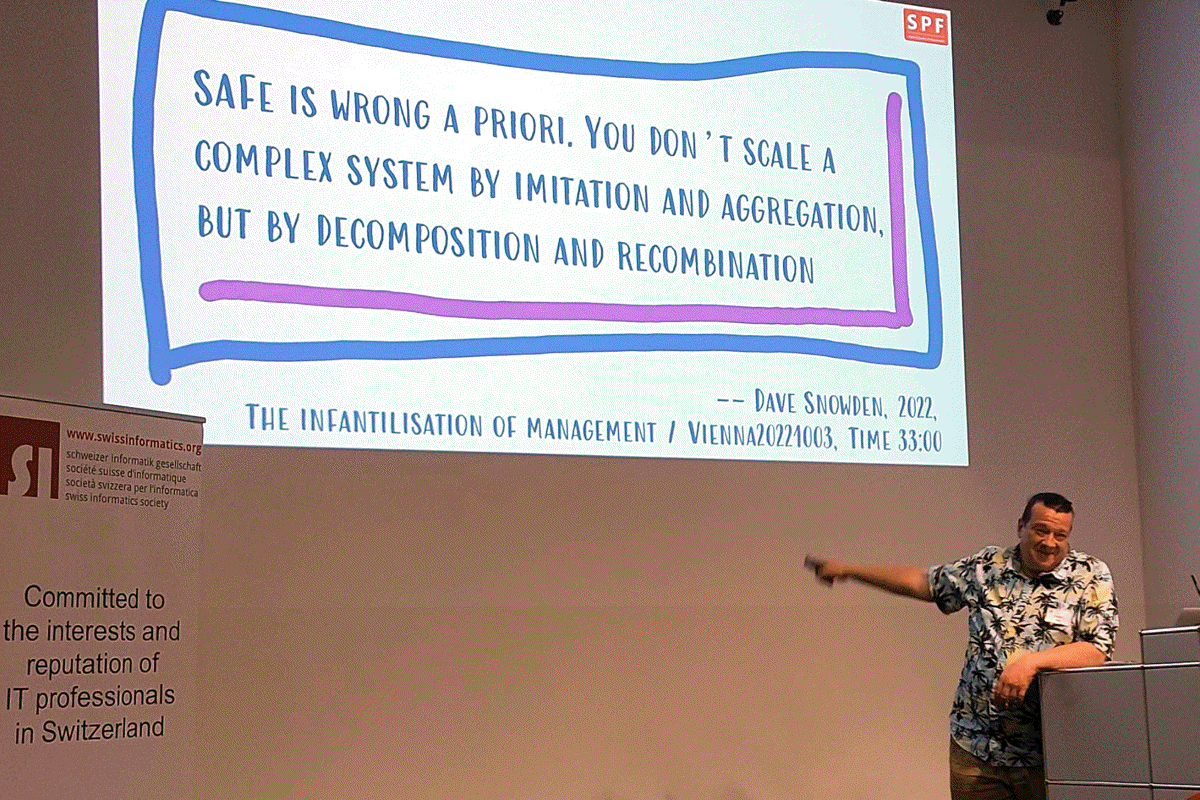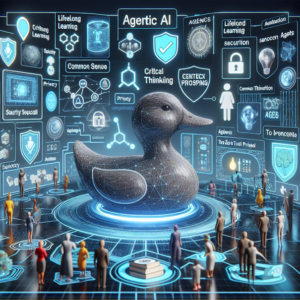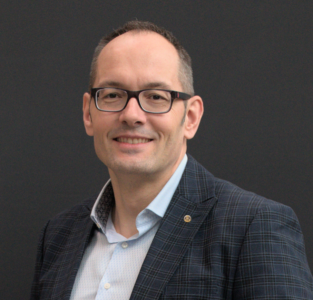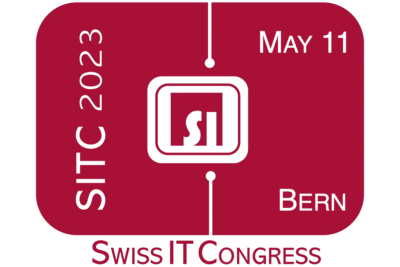As part of our SI Evening Talk series, a series of events where we facilitate discussion of various IT topics, SI invited Danilo Biella to Geneva to share his perspectives on the current state of Agile.

SI Evening Talk by Danilo Biella
on April 27, 2023 at Forum Genève

Danilo Biella has a master in computer science and works as an Agile and Quality Consultant. He is also involved in the wider Agile community and a member of SI, always advocating for more quality in Agile. At the talk on April 27 in Forum Genève, he talked about how Agile was changed through the pandemic and through its growing appeal , what makes a perfect team and how Agile can clash with the work that needs to get done.
Agile software development emerged in the early 2000s as a response to the limitations of traditional software development methodologies, such as the waterfall model. The Agile Manifesto, created by a group of software developers in 2001, outlined a set of values and principles for agile software development.
Agile emphasizes collaboration, flexibility, and responsiveness to change. Instead of a rigid, linear process, Agile is iterative and focuses on delivering working software in small, incremental steps. This allows teams to respond to feedback and changing requirements quickly.
There are several popular Agile frameworks, including Scrum, Kanban, and Extreme Programming (XP), each with its own specific practices and approaches. Agile has become a widely adopted approach to software development, with benefits including faster time-to-market, improved quality, and increased customer satisfaction. To fit a bigger setup, scaled agile frameworks as Safe and Nexus have been introduced with the possibility to deliver bigger software projects but also in need of more coordination.
A central point of Danilo’s discussion of Agile was the ‘perfect team’. Ideally, the members of this team have both the practical knowledge and the teamwork to make software development work smoothly. They are able to plan a project and code it until they reach a stumbling block which sends them back to the planning stage, repeating this cycle until completion. This ideal setup is rare to fictitious and brings its own set of problems in a wider context. For example, how do you train new members for the team? How do you deal with team members leaving and taking their know-how with them? How are you selling the project you are creating? While Agile aims to solve these disparities, it can lead to conflict between the core team, management and coaches who are brought in to help with communication between the two.
However, Agile not only struggles with internal conflicts but is also changed through external pressures. Danilo highlighted how working through the pandemic has brought some of the advantages of remote work for Agile to the forefront. While the Agile Manifesto holds face to face communication as the best form of communication, the need to work from home made remote work more sustainable. People gained more awareness of the challenges of remote work and developed habits to counteract them. They now have the equipment and the knowhow to more easily setup remote meetings and collaborate and are more familiar with the tools that an online environment offers. The desire to work from home will not disappear and Agile frameworks will have to acknowledge this reality and work with it instead of against it.
As Agile grew to encompass more people within its framework, Danilo also described a proliferation of terms, factoids and pseudo-science that went along with this growth. Frameworks that are used to create an agile project came with their own terminology, which intermingled and gave rise to a plethora of ideas that are no longer grounded in topical research. Instead, they rely on the Agile name to seem credible. This makes Agile less approachable and more prone to being abused. It also further complicates the relationship between different sides of a project, as different parties insist on the frameworks and terminologies they are familiar with, while refusing to adapt to the needs of their current project.
Danilo highlighted these troubles within Agile and pointed to a return to Agile’s roots as a solution. Instead of insisting on formal rules, he advocated for more cooperation and trust between developers, marketing and management. Trust within a team and with the customer is more important and more beneficial for an end product than strictly following a framework. Also, it is often better to shed rules and terms that are not working, and instead use the overall idea as a guiding light rather than a solid system. While other parties in an IT project are also important, the actual IT practitioners should lead the way with experience, quality control and team spirit grounded in research.
Iris Zeyda is Senior Consultant at isolutions AG. She is a member of the SI Board.
Christian Schwab holds a Master of Arts in English from the University of Bern. He is a member of the SI office, taking care of marketing and social media support.








